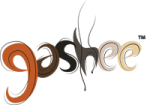Published on July 16, 2018. Last Updated on December 1, 2021.
Olive leaves contain many bioactive constituents such as oleuropein which can benefit a multitude of health areas. Although they have long been discarded in agriculture as waste, these leaf extracts have been found to exert potent anti-inflammatory, anti-oxidant and anti-microbial properties. The olive leaf was first used in ancient Egypt for medicinal and healing uses. Throughout centuries, it has been consumed as liquid extracts, powders, and herbal teas. While the oil derived from the fruit of the plant gets much attention, especially in light of its concentration of oleanolic acid, the concept of using olive leaf oil for hair is finding new forms of support in the world of scientific research and literature.
How Olive Leaf Extract Benefits Hair As An Antioxidant
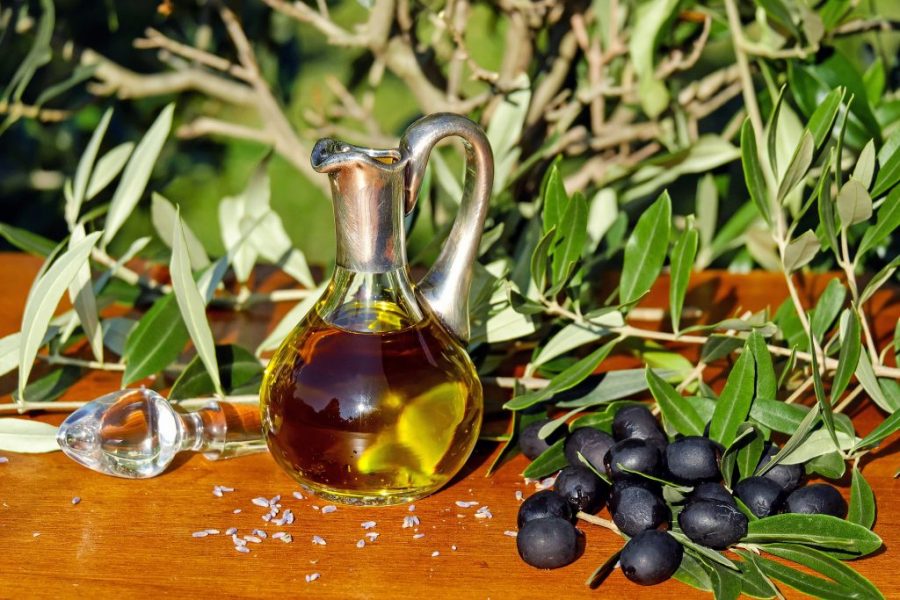
In one study, researchers isolated the main phenolic compounds found in the olive leaf (1). They were interested in learning about their antioxidant properties and how well they could scavenge and neutralize a free radical molecule known as the ABTS+ radical cation.
The researchers found that the antioxidant activities of these olive leaf phenols were due to the following chemical structural characteristics:
- the presence of certain chemical functional groups on the molecules (e.g., 3- hydroxyl group, 2,3 double bond, B-ring catechol)
- The position and quantity of free hydroxyl groups
In another publication, the authors described the significance of oxidative stress as a major factor contributing to the aging processes of the body, including those experienced by the hair follicles (2).
They pointed out that our cells and tissues start to produce more free radicals as we get older. Although we also have endogenous neutralizing processes, these mechanisms start to decline and become less active over time.
Our hair follicles show signs of aging in the form of:
- Decreased numbers of melanocytes (i.e., pigment-containing cells) resulting in grey and white hairs
- Reduced hair production
The authors concluded that oxidative stress is a significant variable that contributes to hair loss.
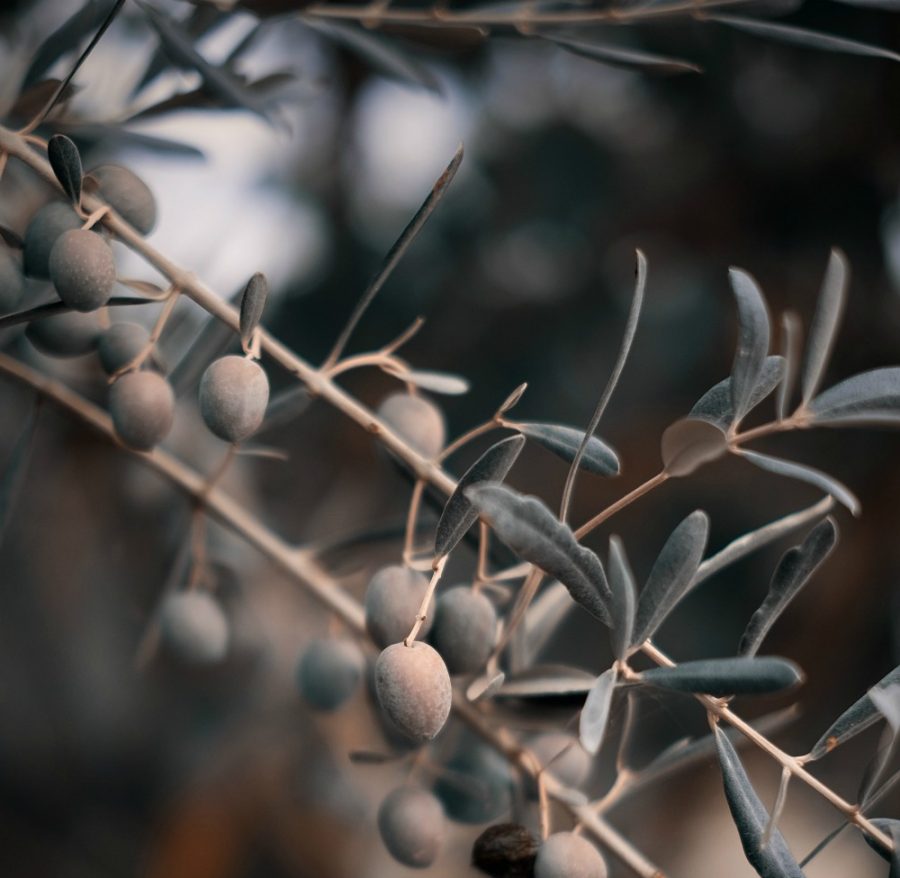
A study that investigated oxidative stress in androgenic alopecia noted the biochemical factors related to oxidative stress found in 27 male subjects with pattern baldness(3).
The researchers observed levels of specific markers indicative of oxidative stress in the plasma and red blood cells. These included:
- Malondialdehyde (MDA)
- Thiol levels
They also looked at the levels of compounds created by the body that counter and neutralize the effects of oxidative stress:
- Superoxide dismutase (SOD)
- Glutathione peroxidase (GPX)
- Catalase (CAT)
They calculated an index referred to as the Trolox Equivalent Antioxidant Capacity (TEAC) for each of the participants.
Overall, the subjects displayed diminished antioxidant activities and increased concentrations of MDA, which illustrated enhanced oxidative stress levels in sufferers of androgenic alopecia.
The Antimicrobial and Antioxidant Activities of Olive Oil Leaf Extract for Hair Loss
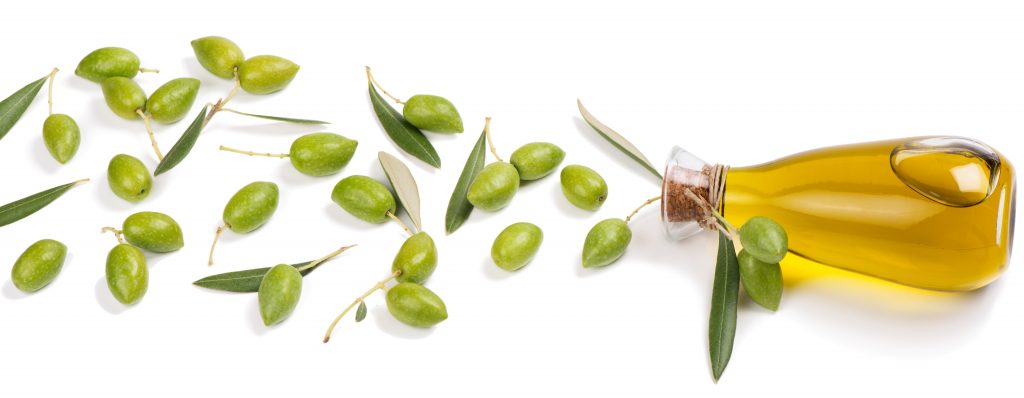
One in-vitro study examined the effects of commercial liquid olive leaf extract on different strains of bacteria (6). The researchers isolated individual phenols and studied their activities. They also combined them with observing their effects as well.
Using broth microdilution and agar dilution methods, the olive leaf oil extract was found to be effective against the following strains:
- Helicobacter pylori
- Campylobacter jejuni
- Staphylococcus aureus
- Meticillin-resistant aureus (MRSA)
These results were largely attributed to the oleuropein and caffeic acid compounds found in the olive leaf. Combined phenols demonstrated much greater antimicrobial effects compared to the individual constituents.
Another study revealed that the olive leaf extract also showed similar dynamics as superoxide dismutase (SOD), the enzyme noted above, which scavenges free radicals and helps protect the body from oxidative stress (4).
Free radical damage contributes to the aging processes that affect many areas of the body, including the hair follicles. Also, the presence of microbes in the scalp environment triggers inflammatory processes that can impair hair production.
In a research study entitled, The role of Inflammation and Immunity in the Pathogenesis of Androgenic Alopecia, 20 men with genetic pattern baldness who reported mild itching and abnormally high rates of hair loss were treated with an antimicrobial lotion for eighteen months (5). The itching was most likely due to the presence of bacteria or fungi in the scalp. It resolved quickly shortly after starting the treatment.
Every three months, the research team recorded progress through photographs and trichograms. They found improved signs of hair growth and density, particularly with transitional hairs.
Every six months, the researchers took biopsies to observe changes in the participants’ immunohistochemistry. Their findings showed a reduction in inflammatory processes in the form of fewer activated T-cells and an absence of IgG deposits.
This study concluded that microbes might cause the inflammation displayed by many AGA sufferers. And these secondary factors can worsen the severity of hair loss.
The antimicrobial effects of olive leaf oil for hair may offer a safer, natural form of treatment compared to synthetic ingredients such as piroctone, olamine, and triclosan.
Research on Olive Leaf Oil Benefits for Hair Growth
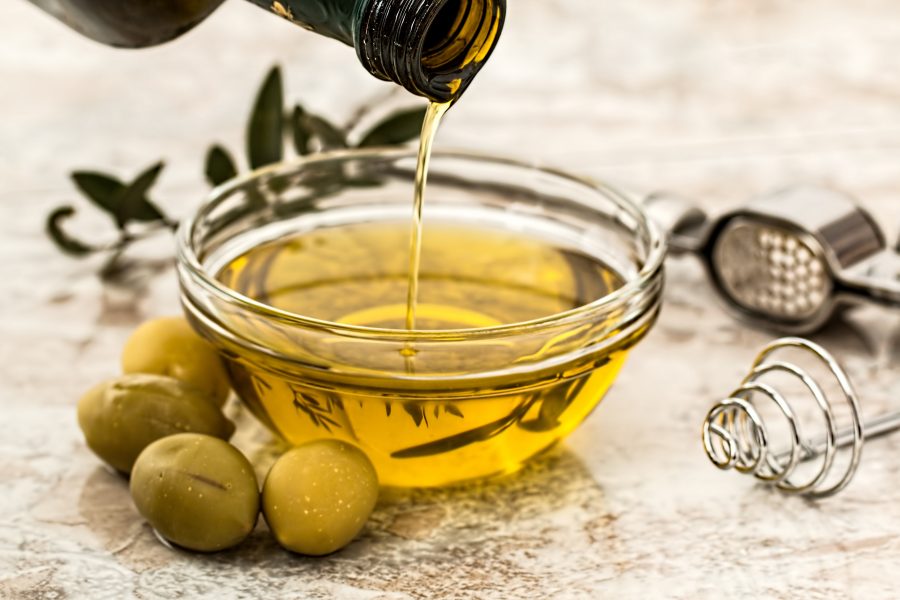
Oleuropein is the primary medicinal constituent found in olive leaf oil for hair. In one study, it was topically applied to mice that researchers had treated to induce the telogen stage (7). This is the part of the hair life cycle when hair production stops.
The oleuropein was able to activate the anagen active growth stage. According to the authors of this research, the olive leaf extract produced these results by upregulating the genes responsible for activating the Wnt/B-catenin pathway, which produced signals in the hair cells that initiated the anagen hair growth stage.
This research study shows that olive leaf oil for hair extract has the ability to restart hair growth in resting, dormant follicles. Although these findings were seen in mice, this capability may prove to be a promising possibility for enhancing the primary action mechanisms for hair loss treatments designed for humans.
Future Steps on Studying Olive Oil Leaf Extract for Hair Loss

The anti-oxidant, anti-inflammatory, and anti-microbial properties displayed by the olive leaf extract show positive treatment potential for the general variables that undermine the hair follicles’ health and their ability to produce new hair strands. As such, the use of olive oil leaf extract may be safely used within the scope of highly focused topical treatments that promote more optimal scalp environments for hair follicles by neutralizing free radicals and protecting them from inflammatory damage due to bacteria and fungi.
However, there is still much room for continued research studies on needed to learn more about the effects of olive leaf oil for hair follicles, especially in terms of growth improvements within human subjects.
Frequently Asked Questions – Olive Leaf Oil for Hair
Are there any findings on olive leaf essential oil uses for the hair?
The healing constituents of the olive leaf are available as liquid extract products rather than as an essential oil. The findings noted in the studies above best describe the research to date that has uncovered information about the treatment potential of olive leaf extract for the hair. The oleuropein is best used within a well-designed topical formulation that includes other ingredients that complement its role by addressing other contributing hair loss factors such as TGF-beta and DHT. An effective topical product will also need to have ingredients that enhance skin penetration to reach the follicles.
How can I know if olive leaf oil benefits for hair growth is right for me or not?
If you are suffering from hair loss, the best initial step is to speak to a qualified doctor who can help you understand what is causing your condition. With this insight, you will know if there are secondary factors like microbes or oxidative stress, causing you to lose hair faster. Like any other plant essence, olive leaf oil or extract should not be viewed as a cure-all. But rather, it works as a contributor to improved scalp and follicular health.
Besides olive leaf oil for hair, what are some other ways I can enrich my health regimen with more antioxidants?
Many plant-based foods are rich in anti-oxidants. This includes green tea, blueberries, dark green vegetables, cranberries, purple grapes, and dark chocolate.
Diet and health practices help to optimize the well-being of your entire body. While they can help set the stage for better follicular health, they should not be viewed as a form of treatment specifically for hair loss, which is a very complicated condition that is often genetically based. Other variables like inflammation and oxidative stress are usually secondary issues that can worsen a person’s hair loss. Rather than trying to treat your condition yourself, get insight and feedback from your doctor to understand what is causing you to lose hair and how secondary factors might be affecting you.
References
(1) Benavente-Garcıa, O., et al. “Antioxidant activity of phenolics extracted from Olea europaea L. leaves.” Food Chemistry 68.4 (2000): 457-462.
(2) Ralph M Trüeb, et al., “Oxidative Stress in Ageing of Hair “ Int J Trichology. 2009 Jan-Jun; 1(1): 6–14.
(3) BE Prie et al., “Oxidative stress in androgenetic alopecia” J Med Life. 2016 Jan-Mar; 9(1): 79–83
(4) Lee, Ok-Hwan, and Boo-Yong Lee. “Antioxidant and antimicrobial activities of individual and combined phenolics in Olea europaea leaf extract.” Bioresource technology 101.10 (2010): 3751-3754.
(5) Magro CM et al., “The role of inflammation and immunity in the pathogenesis of androgenetic alopecia,” J Drugs Dermatol. 2011 Dec;10(12):1404-11.
(6) Sudjana, Aurelia N., et al. “Antimicrobial activity of commercial Olea europaea (olive) leaf extract.” International journal of antimicrobial agents 33.5 (2009): 461-463
(7) Tao Tong et al. “ Topical Application of Oleuropein Induces Anagen Hair Growth in Telogen Mouse Skin” PLoS One. 2015; 10(6): e0129578.
Further Reading
Can tall oil benefits hair? Read the latest research.
Find out what these studies observed about flaxseed oil and hair loss.
